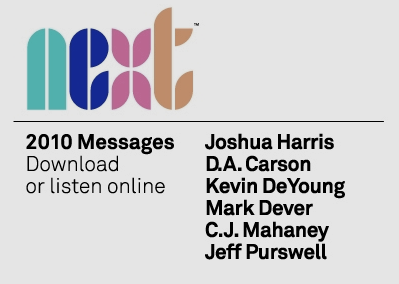I enjoy newly written songs that express the Christian faith. Every now and then you stumble across a song that musically is easy to learn and easy to sing. As the pastor of our church, I also enjoy introducing new songs to our congregation. Introducing new songs not only encourages the congregation to grow musically, but it also keeps them aware of "what" they are singing. There are times when singing an "oldie but goodie" that we go on auto-pilot and forget the meaning of the lyrics and gospel message. But great care must be administered when selecting songs (newer or older) to introduce to the church because not all songs express the Christian faith clearly and some songs are contrary to the Christian faith even if they carry the label "Christian."
For example, the following lyrics were written by a "Christian" musician.
Oh, how could it be
That my God would welcome me
Into this mystery
Say take this bread, take this wine
Now the simple made divine
For any to receive
This musicians songs are sung in a large portion of churches today. But when you discover the background of the worship leader, you discover that his theology is Catholic. And while it could be true that many of his songs express true Christian doctrine, one should expect some songs to carry theology that is distinctly Catholic.
Knowing that this musician is Catholic, I have to wonder what he meant when he penned the lyrics "now the simple made divine." The song, being about communion, would seem to work musically and lyrically. But when put it up to a doctrinal test, it would seem that it fails the test of true doctrine--if I correctly understand the author's intent. In Catholic theology, the view of communion is that the elements of bread and wine become the true body and blood of Christ--transubstantiation. In the words of the musician, the "simple [is] made divine." If that is what the author intended to say, then this should not be a song sung in Protestant churches. If the Catholic author intented to say something else, then his lyrics are ambiguous at best.
Unfortunately, most musicians don't offer a commentary on all of their songs and indeed it seems that many might even allow a vast array of interprations of their songs as long as it encouraged others in the "faith" and in their "walk with God." What the songs "meant to you" and what it "did for you" can in no way be the means of authenticating it's message. As always Scripture alone is the rule of belief and practice. And if one is writing a song to express Christian doctrine, then one should be clear in what he/she is intending to say. In this case, the message seems clear enough and thus the song would not pass the test of right doctrine.
A word of caution would be helpful for all of us. Just because someone writes one or two theological correct songs, doesn't mean that all of their songs are given a free pass. Always be discerning and remember that is the habit of Satan to subtly introduce heresy into the church.
skip to main |
skip to sidebar
recent comments
Categories
- A.W. Pink (2)
- accountability (6)
- Albert Mohler (4)
- Alistair Begg (1)
- Amillennialism (1)
- amusement (1)
- apostasy (1)
- Arminianism (2)
- Atonement (2)
- Attributes of God (2)
- authorial intent (1)
- baptism (1)
- being called (5)
- blessings (4)
- boldness (2)
- Books (3)
- branch (1)
- c.j. mahaney (5)
- Calvinism (6)
- Chelsea Kauflin (3)
- Christ (12)
- Christ our treasure (3)
- Christ's love (2)
- Christian Education (1)
- Christian Hedonism (1)
- christlikeness (5)
- Christmas (4)
- church (10)
- Church discipline (1)
- Church History (2)
- Church Merge (1)
- Church Planting (2)
- comfort (1)
- communion (1)
- Condemnation (1)
- Conscience (1)
- contemplate (1)
- Conversation (1)
- Creation (1)
- cross (16)
- D.A. Carson (3)
- Death (2)
- discernment (4)
- Discipleship (1)
- Discipline (1)
- Dispensational Premillennialism (1)
- Doctrine (1)
- Doctrines of Grace (13)
- doubt (1)
- douglas moo (1)
- Dr. Michael Horton (1)
- drinking (1)
- Effectual Call (1)
- Election (5)
- emerging church (1)
- encouragement (11)
- Entertainment (1)
- evangelism (23)
- Exegetical Fallacies (1)
- Facebook Complaining (1)
- faith (9)
- Faithfulness (1)
- Fathers (1)
- fear (5)
- Fear of God (1)
- fellowship (10)
- figs (1)
- focus (4)
- forgiveness (5)
- Francis Chan (1)
- Free Stuff (2)
- free will (1)
- fruit (4)
- full-time ministry (7)
- giving (3)
- God's glory (13)
- God's goodness (3)
- God's grace (21)
- God's Love (15)
- God's name (8)
- God's power (13)
- God's Sovereignty (1)
- God's will (8)
- God's Wisdom (2)
- God's word (27)
- Good Friday (2)
- gospel (36)
- Gospels (1)
- grace discipline pride selfishness (1)
- Great High Priest (1)
- Heaven (1)
- Hell (1)
- heresy (1)
- Historic Premillenialism (1)
- history (1)
- Holy Spirit (5)
- homosexuality (1)
- Honoring God (5)
- honoring your parents (1)
- humility (14)
- Humor (3)
- hymns (3)
- hypocrisy (1)
- idolatry (1)
- Imputation (2)
- Incarnation (1)
- integrity (2)
- intercession (1)
- Interpretation (1)
- interview (2)
- Irresistable Grace (5)
- Isaiah (1)
- Jesus (10)
- jim elliot (1)
- Joey Mejia (1)
- John Bunyan (1)
- John Calvin (1)
- John MacArthur (2)
- John Owen (4)
- John Piper (9)
- John Stott (1)
- Joseph (1)
- Joshua Ritchie (99)
- Joy (2)
- justification (1)
- kingship (1)
- Law (3)
- Lawkeeping (1)
- ligon duncan (2)
- Lordship (2)
- love (22)
- Loving God (2)
- mark dever (6)
- Mark Driscoll (1)
- marriage (4)
- Martin Luther (2)
- Matthew (7)
- mercy (5)
- Metanarrative (1)
- Ministry (6)
- missions (8)
- Money (1)
- Mormons (1)
- Mothers (1)
- Music (1)
- N.T. Wright (1)
- Narrative Theology (1)
- New Exodus Theology (1)
- New Perspective On Paul (1)
- Noah (1)
- Obedience (22)
- open theism (1)
- Parables (1)
- Parenting (4)
- passion (3)
- Pastors (2)
- Paul (1)
- peer pressure (5)
- persecution (8)
- perserverance (2)
- Pharisees (1)
- phil johnson (1)
- Possessions (1)
- Postmillennialism (1)
- poverty (1)
- praise (9)
- prayer (32)
- Preaching (7)
- preciousness of Christ (6)
- pride (2)
- priorities (7)
- promises (3)
- Prosperity (1)
- Psalm 115 (1)
- Psalm 73 (1)
- puritans (3)
- Purpose Driven Life (1)
- question (1)
- questions (3)
- Quote of the Day (4)
- Quote of the Week (4)
- radio (1)
- Reconciliation (2)
- redemption (1)
- Reformation (2)
- Reformed Theology (5)
- regeneration (4)
- Regulative principle (1)
- relationships (1)
- repentence (6)
- requests (7)
- responsibility (2)
- Resurrection (1)
- righteousness (5)
- risk (1)
- Rob Bell (1)
- Romans (3)
- Sacred Sandwich (1)
- sacrifice (10)
- salvation (13)
- sanctification (33)
- scripture (13)
- semi-pelagianism (1)
- Sermons (7)
- serving (4)
- Sex (1)
- Shai Linne (1)
- sin (21)
- Sinclair Ferguson (1)
- Solitariness (1)
- Songs (5)
- Sovereign Grace (1)
- Sovereign Grace Ministries (3)
- sovereignty (18)
- Spanking (1)
- spiritual warfare (4)
- sports (1)
- Sproul (2)
- Spurgeon (1)
- St. Augustine (1)
- suffering (3)
- Take No Glory (1)
- talia (38)
- Teaching (3)
- temptations (2)
- thanksgiving (5)
- The Cambridge Declaration (1)
- The Five Solas (8)
- The Golden Rule (1)
- The Natural Man (1)
- theology (3)
- think (1)
- Todd Friel (1)
- trial (3)
- trusting God (12)
- truth (7)
- Tulip (1)
- Valley of Vision (1)
- victory (1)
- vine (1)
- weddings (1)
- William Wilberforce (1)
- Witnessing (2)
- Word Of The Week (3)
- worship (23)
- worship praise (2)
- Wrath (1)
| Blog: |
| TALIA |
Topics: |
| gospel, theology, encouragement |
















No comments:
Post a Comment